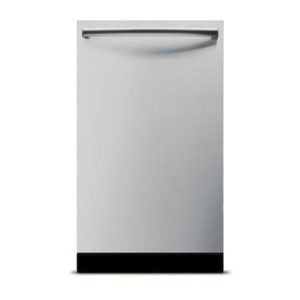Leak
Displaying 1 - 1 of 0 Articles
Categories
-
July 28, 2017
When is it time to call for appliance service?
Getting Your Appliance FixedHow do you know when to call?Here's when you don't need appliance service: Your refrigerator water filter needs replacement. You should be able to do this yourself. If for some reason you can't, a handyman can do this for you. Your washing machine has an inlet hose that is leaking. Replace the leaking hose (I'd replace both hoses). No need for a service call. The dishwasher is not getting your dishes clean. There could be many reasons for this other than a malfunctioning dishwasher. Maybe the incoming water is not hot enough. Hard water can be a problem. There's not enough or too much detergent. You might need to use a rinse agent, or additive.Here's when you do need to call for service: Your refrigerator is not cooling. You've plugged and unplugged, and tested the electric outlet so that you know your fridge is getting power. Nevertheless, your food is spoiling. Call for service. Your washing machine suddenly made a loud grating sound, and ground to a halt. Now you can't get it to do anything. You need a qualified service agent. The dishwasher will start, fills with water, etc. but it just doesn't do anything. No noise, no water movement, no nothing. Your neighbor says, it's probaly the pump and/or motor.You get the idea. Some simple things like changing filters are not reasons to call for service. When appliances have critical failures, that can't be fixed by turning the power back on, etc. it's time to
-
April 15, 2015
Saving Water in Your Home
Water Saving Tips Mark Twain is usually credited with saying, "Everybody talks about the weather, but nobody does anything about it." Today, we might say the same thing about the drought. There's lots of talk about saving water, but as individuals we could be doing a lot more. Here is some data from the EPA about our water usage Each American uses an average of 100 gallons of water a day at home. We can all use 30 percent less water by installing water-efficient fixtures and appliances. The average household spends as much as $500 per year on their water and sewer bill and can save about $170 per year by installing water-efficient fixtures and appliances. Here are a few things you and I could do today to save water today inside our homes. Easy Ways to Save Water at Home Install low-flow water faucetsThe average person loses 10 gallons each day to household leaks (14% of indoor water usage). Installing new low-flow aerators is the best single thing that can be done to save water inside the house, and it requires no behavior change. At a minimum, we should at least repair leaky faucets and toilets. Take showers rather than bathsFilling a bathtub will take 20 gallons of water or more, but taking a 5 minute shower using a low-flow shower head will use about half the water of the bath. Don't leave the water runningWhen standing at the sink engaged in grooming, shaving, washing hands,or brushing teeth turn![wpid-Photo-20141211171703365.jpg wpid-Photo-20141211171703365.jpg]()
-
February 23, 2015
Getting Your Dishes Clean
3 Myths About Dishwashers Full Dishwashers Clean Best Not true. Dishes need some separation from one another. Crowded dishwasher racks are likely to have dishes or bowls nested inside one another making it impossible for the detergent, and spray action to get inside to "scrub" the dirty dish or bowl. Fill your dishwasher, but make sure the dishes don't snug up against each other. Using Dishwashers Sparingly Extends their Lifespan. Not really. Dishwashers have seals that need to be moist. If they stay dry for long periods of time they can dry and crack. When the seal doesn't work, you may experience water leaks. The repair is expensive. In fact, if you have a winter or summer home with a dishwasher, you should pour a cup of vinegar in the dishwasher when you are going to be gone for the season in order to keep the seals moist. Dishwashers run just fine with cold water. In most parts of the country unheated tap water is about 60 degrees (varies some with climates). At this temperature, the water isn't even capable of breaking down the detergent. But your water heater will boost the temperature. A typical dishwasher might look for a minumum temperature of the incoming hot water to be about 120 degrees. Then the dishwasher will turn on its internal heater to boost the water temperature even more. A sani-cycle might boost the temperature to 160 degrees or higher. NSF requires a a combination of a certain minimum temperature for![wpid-Photo-Feb-23-2015-550-PM.jpg wpid-Photo-Feb-23-2015-550-PM.jpg]()
Displaying 1 - 1 of 0 Articles



